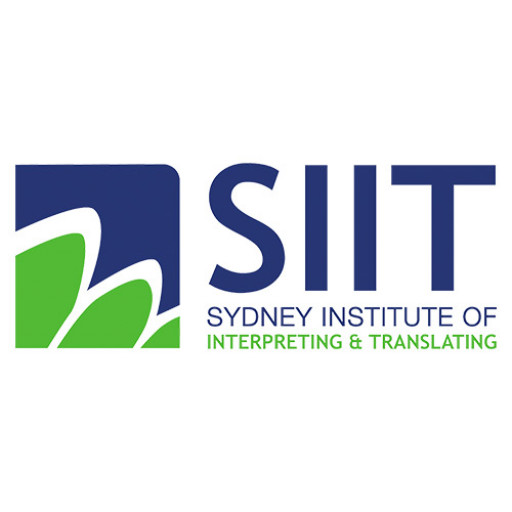Photos of university / #rmituniversity
The Bachelor of Arts in Translating and Interpreting Studies at RMIT University offers a comprehensive and practical education designed to develop your advanced language skills and cultural competence in a global context. This program is tailored for students who are passionate about languages and communication, aiming to become professional translators and interpreters in a variety of settings. Throughout the course, students will acquire a deep understanding of linguistic, cultural, and contextual nuances essential for high-quality translation and interpretation work. The curriculum combines theoretical frameworks with real-world application, ensuring graduates are well-prepared to meet industry demands.
Students will learn to translate texts across diverse fields such as business, legal, medical, technical, and artistic disciplines, while also mastering the skills necessary for effective oral interpretation in conference, diplomatic, legal, or community settings. The program emphasizes bilingual proficiency, critical thinking, and intercultural awareness, fostering the ability to work accurately and ethically in complex communication environments. Practical training is a core component, with opportunities for internships and industry placements that enable students to gain hands-on experience and build professional networks.
The program also offers specialist streams in translation and interpreting, allowing students to focus on their preferred career pathway. State-of-the-art facilities, including dedicated interpretation labs and translation studios, support immersive learning experiences. Graduates of this program will be equipped to pursue careers as professional translators, conference interpreters, localization specialists, or work in international organizations, government agencies, and private sectors.
RMIT's strong links with industry partners ensure that the curriculum remains current with evolving industry standards and technologies. By completing this program, students will develop not only their linguistic abilities but also essential skills in project management, technology use, and cross-cultural communication—keys to success in today’s internationalized world. Whether you intend to work locally or across borders, this degree provides a solid foundation for a dynamic and rewarding career in translation and interpreting.
The Bachelor of Arts (Honours) in Translating and Interpreting Studies at RMIT University provides students with a comprehensive education in the art and science of language conversion. This program is designed to equip students with exceptional language skills, cultural competence, and professional translation and interpreting techniques suitable for diverse settings. Students will develop fluency in at least two languages, with a focus on their linguistic, cultural, and contextual understanding. The curriculum covers various aspects of translation and interpreting, including theoretical foundations, practical application, technology use, and professional ethics. Throughout the program, students engage in intensive coursework involving written translation, consecutive and simultaneous interpreting, and contextual localization. They also learn how to utilize cutting-edge translation technologies and computer-assisted translation tools to improve efficiency and accuracy. The program emphasizes the importance of intercultural communication, ensuring graduates are prepared to work in a globalized environment. Students are encouraged to undertake internships and real-world projects, providing valuable industry experience and networking opportunities. The curriculum also covers specialized fields such as legal, medical, technical, literary, and audiovisual translation, allowing students to tailor their skills to specific career paths. Upon completing the program, graduates will possess the competencies needed to work as professional translators and interpreters in various sectors, including government, international organizations, media, and private companies. The program aims to foster bilingual or multilingual proficiency, cultural sensitivity, and ethical professionalism, ensuring graduates are well-equipped to meet the diverse demands of the translating and interpreting industry locally and internationally.
- Successful completion of an Australian undergraduate degree or equivalent
- Applicants with significant relevant work experience may also be Believed
- Students are required to pass a intake test Handled by the University
The Bachelor of Arts (Honours) in Translating and Interpreting Studies at RMIT University offers students comprehensive financial information to assist in planning their education. Tuition fees for domestic students are approximately AUD 9,000 to AUD 12,000 per year, depending on the specific course load and additional fees. International students can expect tuition fees in the range of AUD 30,000 to AUD 35,000 annually. These costs cover access to coursework, university resources, and support services but do not include personal expenses, accommodation, health insurance, or other living costs.
Students are encouraged to explore various financial aid options to support their studies. RMIT University offers scholarships based on academic merit, financial need, or specific criteria related to the program or student background. International students may also be eligible for external scholarships or loan programs in their home countries.
In addition to tuition fees, students should budget for incidental expenses such as textbooks, software, and professional development activities. There may be opportunities for part-time work on or near campus, which can help offset living expenses. Australian domestic students can access government-funded student loans through the Commonwealth Supported Place (CSP) scheme and have the option to defer payments via the Higher Education Loan Program (HELP). International students are generally required to pay their tuition fees upfront unless they hold an approved student visa and have arranged payment plans with the university.
Financial planning is an essential aspect of undertaking a degree in Translating and Interpreting Studies. Students should consider all potential costs and explore funding options early in their studies to ensure smooth progress throughout their academic journey. RMIT provides financial counseling services to assist students in managing their budgets and understanding available financial support programs.
The Bachelor of Arts (Honours) in Translating and Interpreting Studies at RMIT University offers students a comprehensive education in the fields of translation and interpreting, preparing graduates for professional careers in a globalized environment. The program emphasizes linguistic proficiency, cultural understanding, and technical skills in translation and interpretation processes across various languages. Students have the opportunity to develop expertise in translating written texts and interpreting spoken communication, with a focus on both community and professional settings. The curriculum includes core courses in language proficiency, translation theory, intercultural communication, and specialized fields such as legal, medical, and business translation. Practical training is a key component, providing students with real-world experience through internships, industry placements, and collaborative projects with partner organizations. The program is designed to equip students with advanced language skills, digital literacy, and familiarity with translation technology tools, ensuring they are workforce-ready upon graduation. RMIT's strong links to industry professionals and associations offer networking opportunities and access to the latest industry standards. Graduates can pursue careers as professional translators, interpreters, localization specialists, or work in international organizations, government agencies, or private firms requiring multilingual communication expertise. The program aims to foster cultural sensitivity, ethical practice, and lifelong learning habits in students, aligning educational outcomes with industry demands and global trends in translation and interpreting fields.




